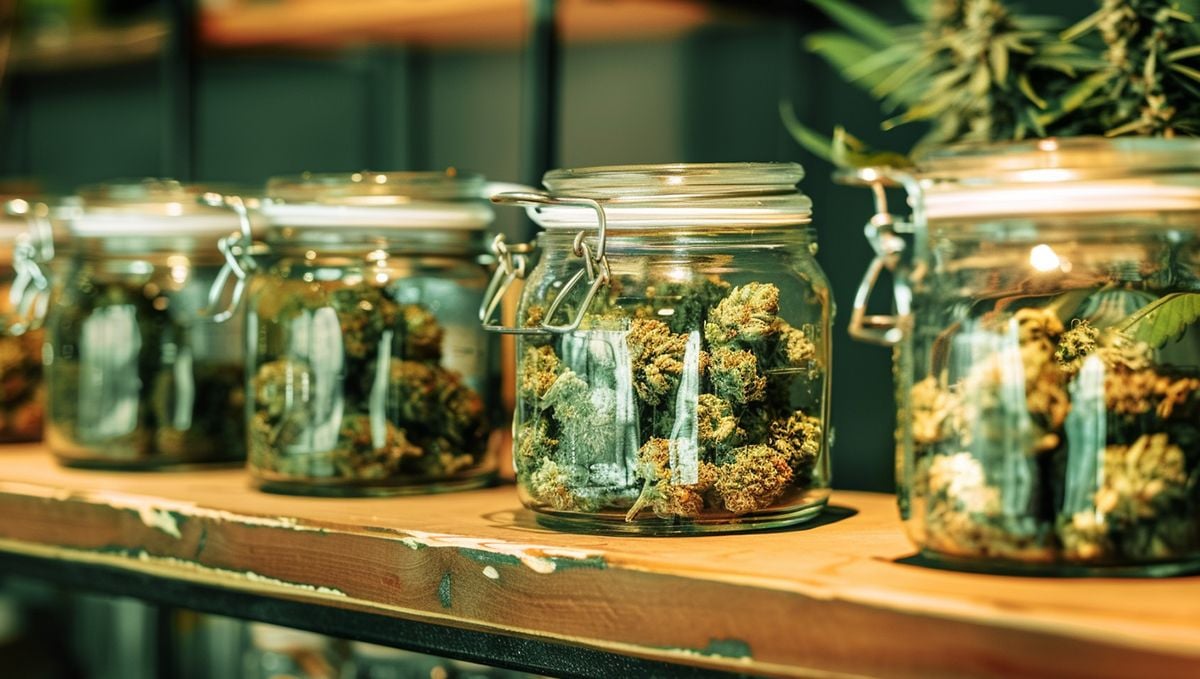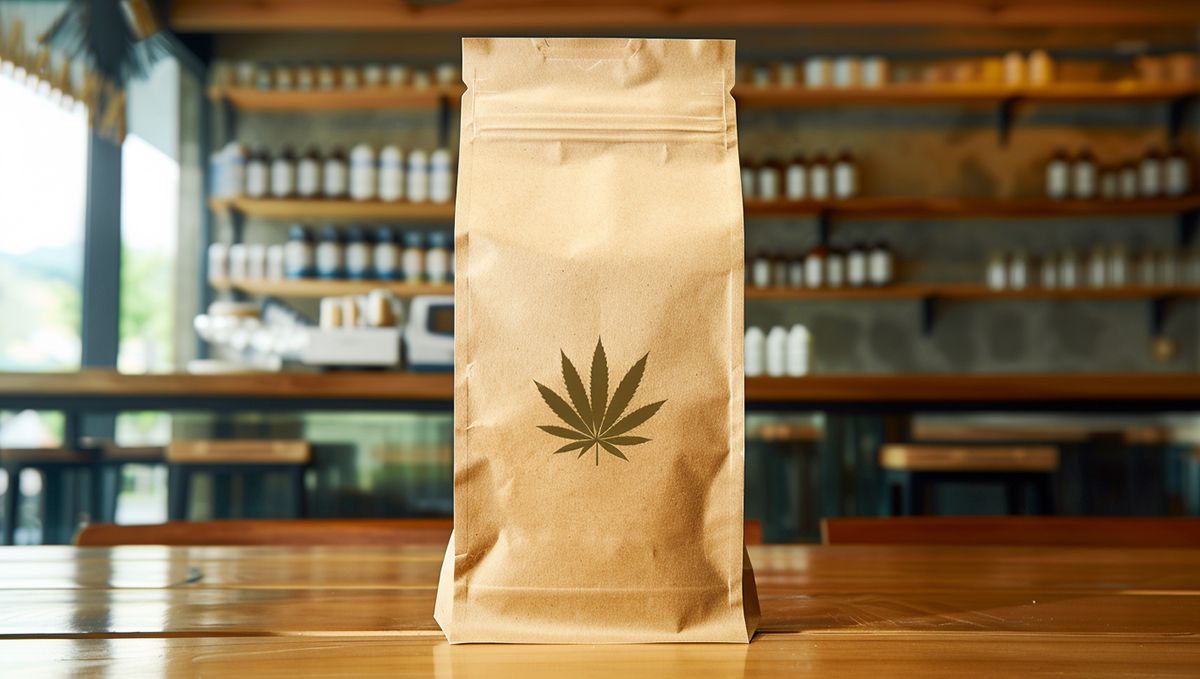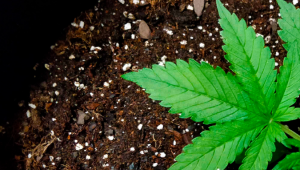Weed in North Dakota: Cannabis Legal Status Guide

- 1. North dakota decriminalized weed in 2019
- 1. a. Driving under the influence laws in north dakota
- 2. Medical marijuana in north dakota
- 2. a. What are the qualifying conditions?
- 2. b. Does north dakota have dispensaries?
- 2. c. Do you need a medical card to buy marijuana?
- 2. d. Can a patient grow marijuana in north dakota?
- 2. e. Do patients get protection in case of workplace drug testing?
- 2. f. Can a patient buy firearms?
- 2. g. Can anyone buy cbd in north dakota?
- 3. The ongoing efforts of recreational legalization
- 4. Final thoughts
North Dakota has already taken the first steps towards relaxing the legislation against cannabis consumption for medical purposes. However, the same cannot be said about recreational cannabis users who still have to pay fines if caught in possession of buds, hash or other concentrates. Although they wouldn’t be criminally charged, the risk is still as unpleasant as it can get. So, what are the legalities of cannabis consumption in North Dakota for our weed aficionados?
North Dakota Decriminalized Weed in 2019
While the newly introduced bill (House Bill 1050) has removed the possibility of misdemeanour charges on cannabis possession for under half an ounce (0.5 ounces/14 grams), public consumption of cannabis or any of its derivatives guarantees some jail time and an expensive fine.
Paraphernalia, pipes and roach clips are also risky to use in public because these also fall under the applicable punishable law. Still, this bill is also the reason other offenses surrounding weed are reduced.
Let’s see what you’re looking at in terms of fines and possible incarceration:
| Offenses and Limits | Incarceration | Maximum Fine |
|---|---|---|
| Public Use | ||
| Any amount | 30 days | $ 1,500 |
| Possession of Dry Flowers | ||
| Less than 1/2 oz | None | $ 1,000 |
| 1/2 oz - 500 g (17.64 oz) | 30 days | $ 1,500 |
| 500+ grams | 360 days | $ 3,000 |
| Possession of Hash/Concentrates | ||
| Less than 2 grams | None | $ 1,000 |
| 2-6 grams | 30 days | $ 1,500 |
| 6+ grams | 360 days | $ 3,000 |
| Possession of Paraphernalia | ||
| To Ingest Marijuana | None | $ 1,000 |
| To Grow or Process Marijuana | 360 days | $ 3,000 |
| Cultivation | ||
| Treated the same as possession based on the weight of dried plants | ||
| Sale | ||
| Any amount | 5 years | $ 10,000 |
Driving Under the Influence Laws in North Dakota
North Dakota is not friendly when it comes to driving under the influence of cannabis. The road police are not allowed to stop you and control you unless your car looks like it has some issues or your driving is suspicious. Another thing to keep in mind is that if you are stopped by the police and they notice signs of substance influence like red eyes, lack of coordination and confusion, they can request you take a chemical test.
Moreover, the bad news is that the police are permitted to pull you up in sobriety checkpoints where they can verify your physical state. Also, keep in mind that these checks (and charges) apply to medical cannabis consumers as well.
On the flip side of the coin, these setups are quite obvious so if you want to be cheeky, you can make a U-turn and move on with your life.
Here are the charges you’d be faced with if caught under the influence:
| Number of offences | Fine | Incarceration/Driver’s licence suspension |
|---|---|---|
| 1st offence | $750 | Driver’s licence suspension for up to 180 |
| 2nd offence | $1,500 |
|
| 3rd offence | - |
|
| Juveniles who are accused and charged with cannabis offences will get their licence suspended for up to 6 months. | ||
Medical Marijuana in North Dakota
In 2016, the North Dakota legislation was modified to allow medical marijuana users with legitimate conditions to get the permission to use and cultivate cannabis for treatment reasons. The amount allowed at this time for patients was 3 ounces (85 grams). This changed in 2017 when the amount of dispensaries made the lawmakers came back in front of their desks and changed the law again to revoke the right to grow your own plant.

Now, the limits increase to 7 ounces for a period of 30 days for patients with debilitating conditions. However, a good thing came out of this, doctors could finally prescribe smoking weed and they’re permitted to have cannabis based products of up to 2,000 mg THC.
What Are the Qualifying Conditions?
Generally, it’s up to the medical professional to decide if the condition is debilitating enough to warrant a marijuana prescription. Still, there is a list of recognized diseases that usually warrant legalized weed consumption.
| Alzheimer’s disease (or related dementia) Amyotrophic lateral sclerosis (ALS) Anorexia nervosa Anxiety disorder Autism spectrum disorder Brain injury Bulimia nervosa Cancer Cachexia Crohn’s disease Ehlers-Danlos syndrome Endometriosis Epilepsy Fibromyalgia Glaucoma |
Hepatitis C HIV/AIDS Interstitial cystitis Intractable nausea Migraine Multiple sclerosis Neuropathy Post-traumatic stress disorder (PTSD) Rheumatoid arthritis Spinal stenosis Severe debilitating pain Severe and persistent muscle spasms Seizures Tourette syndrome* |
* This is not medical advice and if you are a resident of North Dakota suffering from any of the conditions above, you should consult your doctor.
Does North Dakota Have Dispensaries?
Dispensaries are the only places where medical marijuana consumers are able to legally buy weed and some derivatives. In North Dakota they’re known as ‘compassionate centers’ and they’re licensed by the state and you can also find oils, tinctures, captures and other cannabis-related items. However, it’s still illegal to manufacture and sell drinks and edibles from cannabis.
Do You Need a Medical Card to Buy Marijuana?
Short answer, no. North Dakota doesn’t have any protection in place for medical marijuana users. In fact, employers are free to manage their zero-tolerance policy as they wish. So, check with your employer so you don’t risk getting fired because of an impromptu drug test.
Can a Patient Grow Marijuana in North Dakota?
If you’re a medical marijuana consumer, then you won’t pass the ATF background check for purchasing firearms. Federal laws do not permit medical or recreational marijuana users to purchase arms.
Do Patients Get Protection in Case of Workplace Drug Testing?
Short answer, no. North Dakota doesn’t have any protection in place for medical marijuana users. In fact, employers are free to manage their zero-tolerance policy as they wish. So, check with your employer so you don’t risk getting fired because of an impromptu drug test.
Can a Patient Buy Firearms?
If you’re a medical marijuana consumer, then you won’t pass the ATF background check for purchasing firearms. Federal laws do not permit medical or recreational marijuana users to purchase arms.
Can Anyone Buy CBD in North Dakota?
CBD is not under the same restrictions as weed, in fact, anyone is free to buy CBD sourced from hemp. In the case of CBD extracted from weed, then solely medical marijuana users with a doctor’s prescription can purchase and consume it. Basically, since 2018, the Farm Bill allows purchasing CBD sourced from hemp, but not CBD from marijuana.

The Ongoing Efforts of Recreational Legalization
Over the past 7 years, there were several attempts to get weed legalized for recreational users over 21 years old. The first try in 2018 was unsuccessful with about 59% of the voters choosing not to legalize weed. Even though in the previous polls the voters were a bit more positive with 46% in favor, 39% against and 15% not sure.
The next try was in 2020 when the pandemic affected the campaign and it wasn’t possible to gather the necessary amount of votes. Following that, in 2022 the votes were more favorable and about 55% were against recreational marijuana legalization. Unfortunately, both the liberal’s and the republican's initiatives were rejected, either by the Senate, or by population vote.
At this time, there’s no new attempt to legalize recreational marijuana.
Final Thoughts
In the end, it seems that North Dakota is not ready yet for recreational marijuana. And that is fine, but with the work of activists, hopefully that will change in the future. There’s still a little light at the end of the tunnel with the more relaxed sanctions on possession.













Comments